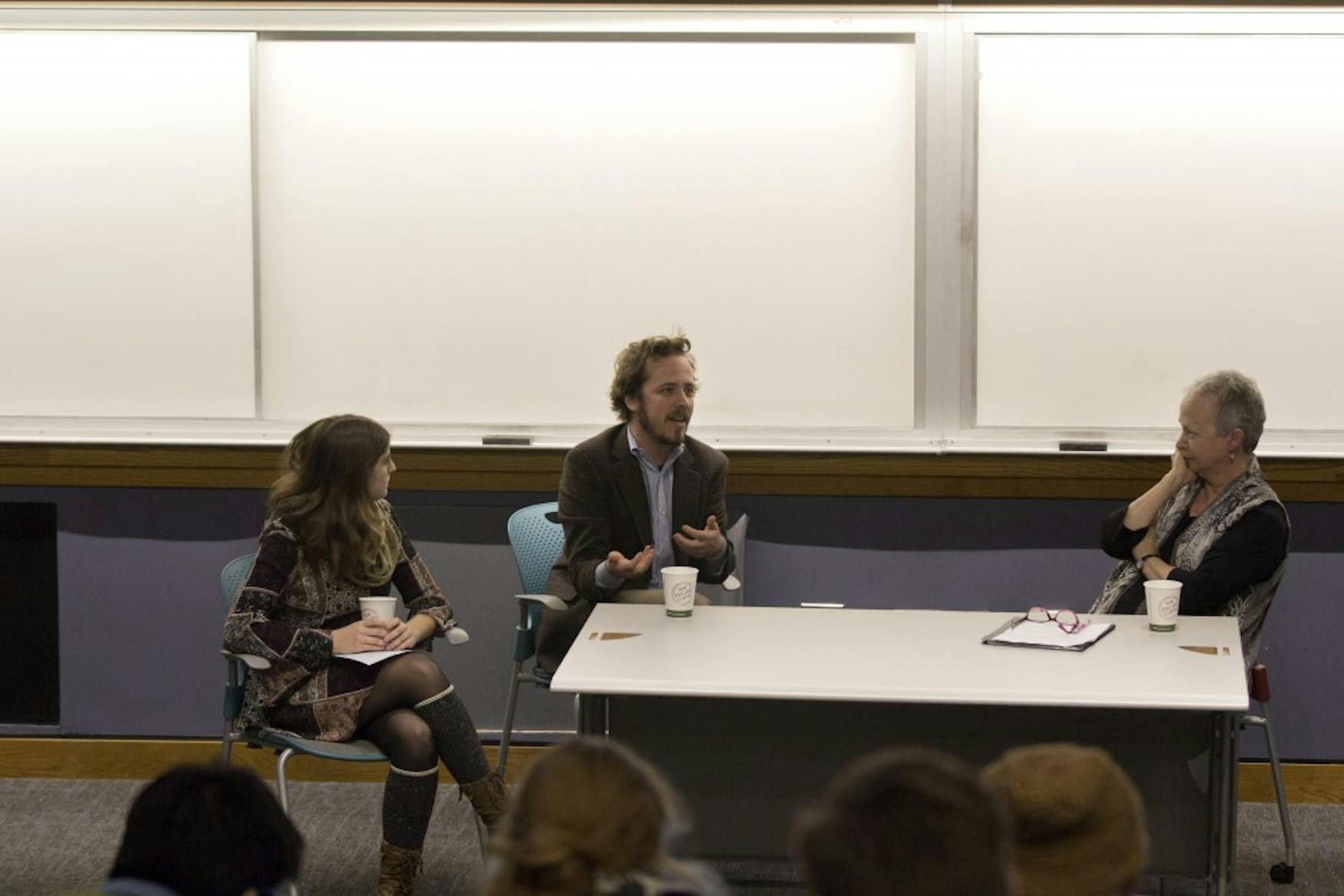Panel evaluates Teach for America’s success
A leading Massachusetts educator met with a Brandeis faculty member on Thursday evening for an open discussion about the effectiveness of Teach For America, a teachers’ organization, on American schools.
Josh Biber, the Massachusetts executive director of Teach For America, defended his employer from Brandeis Prof. Marya Levenson ’64 (ED), Harry S. Levitan Director of Teacher Education. The event was moderated by Renee Korgood ’20, in Schwartz Hall.
Teach For America is an organization that places recent college graduates in a classroom for a two-year period. The organization’s goal is to improve American education by giving its members an understanding of how to effectively teach, so that, even if they don’t pursue a career in teaching, they can use their knowledge to change policy and understand the limitations of the American school system. Detractors argue that its members don’t teach significantly better than ordinary teachers, despite being generally better educated.
The discussion began from a shared understanding that the two speakers reluctantly agreed on: Getting a successful education today depends largely on where you live and on how much money you have. Biber said, “I think it’s something like 8 percent of the kids growing up in poverty graduate from college ... by age 24, in six years. Our kids are smart — they’re brilliant — but they don’t have the same opportunities.”
The discussion then focused on the night’s topic: evaluating the success and failure of TFA. Biber, representing TFA, said he was initially skeptical when he was asked to join Teach For America as a senior at Brown University. Sharing common concerns about the program, he said he felt like two years wouldn’t be enough time to train new teachers and that the program felt like “social imperialism.” In 10 minutes, the recruiter convinced him to join.
The discussion first centered on whether Teach For America has the right attitude about how best to address the growing crisis facing America’s education system. In the end, they both agreed that the central belief behind the program is a noble one: that the responsibility of education reform cannot fall solely on schools. They noted that education reform is often treated as an issue that can be exclusively solved by reallocating money for public schools and enacting specific laws incentivizing schools to perform better on standardized tests. However, according to the speakers, education is rarely so cut-and-dry, and creating an environment that is conducive to education often means building a stronger community and increasing parent involvement with the school — a daunting task.
Another contentious issue was whether the program was ultimately effective in achieving its goal. Biber believed it had been effective, but noted that caution should be exercised in evaluating the program. He explained that the success of Teach for America classrooms can vary wildly because different states have different laws about public school funding and standardized test benchmarks. While all U.S. public schools must use standardized tests to track progress, many states have lowered the testing standards to give the appearance of progress and improvement without increasing funding to schools.
Moving beyond TFA in their discussion, the two discussed charter schools and their place in public education reform, with both expressing reservations about the trustworthiness of these types of schools. A charter school receives government funding but is independent of federal education standards. They noted that Massachusetts has had incredible success with charter schools, because it imposes performance requirements that the schools must satisfy in order to qualify for state funding. They contrasted this idea with Arizona’s policies, which have no requirements for what makes a charter school legitimate. Consequently, Arizona charter schools are some of the least successful charter schools in the country.
Despite these ideological differences, both speakers respected their opponent’s ideas and expressed hope that the system would improve. Fittingly, the two teachers expressed their hope in a new generation of educators to change the world.




Please note All comments are eligible for publication in The Justice.